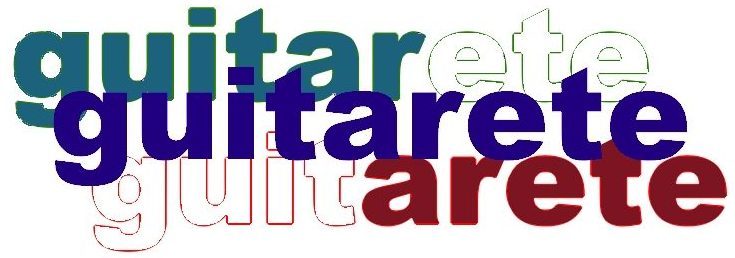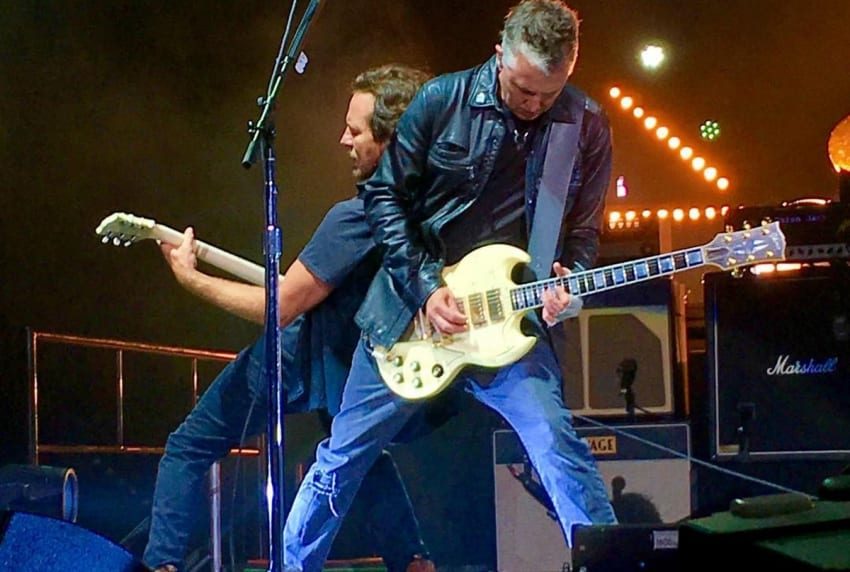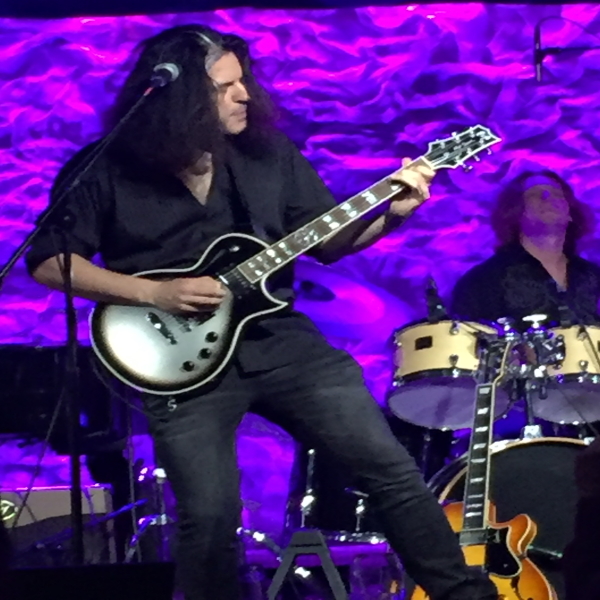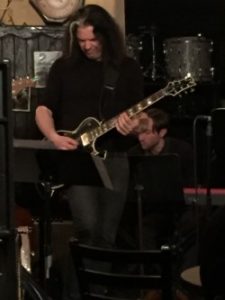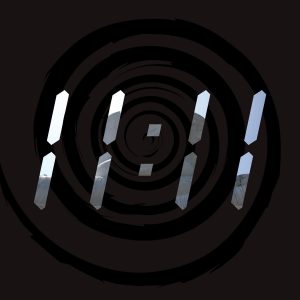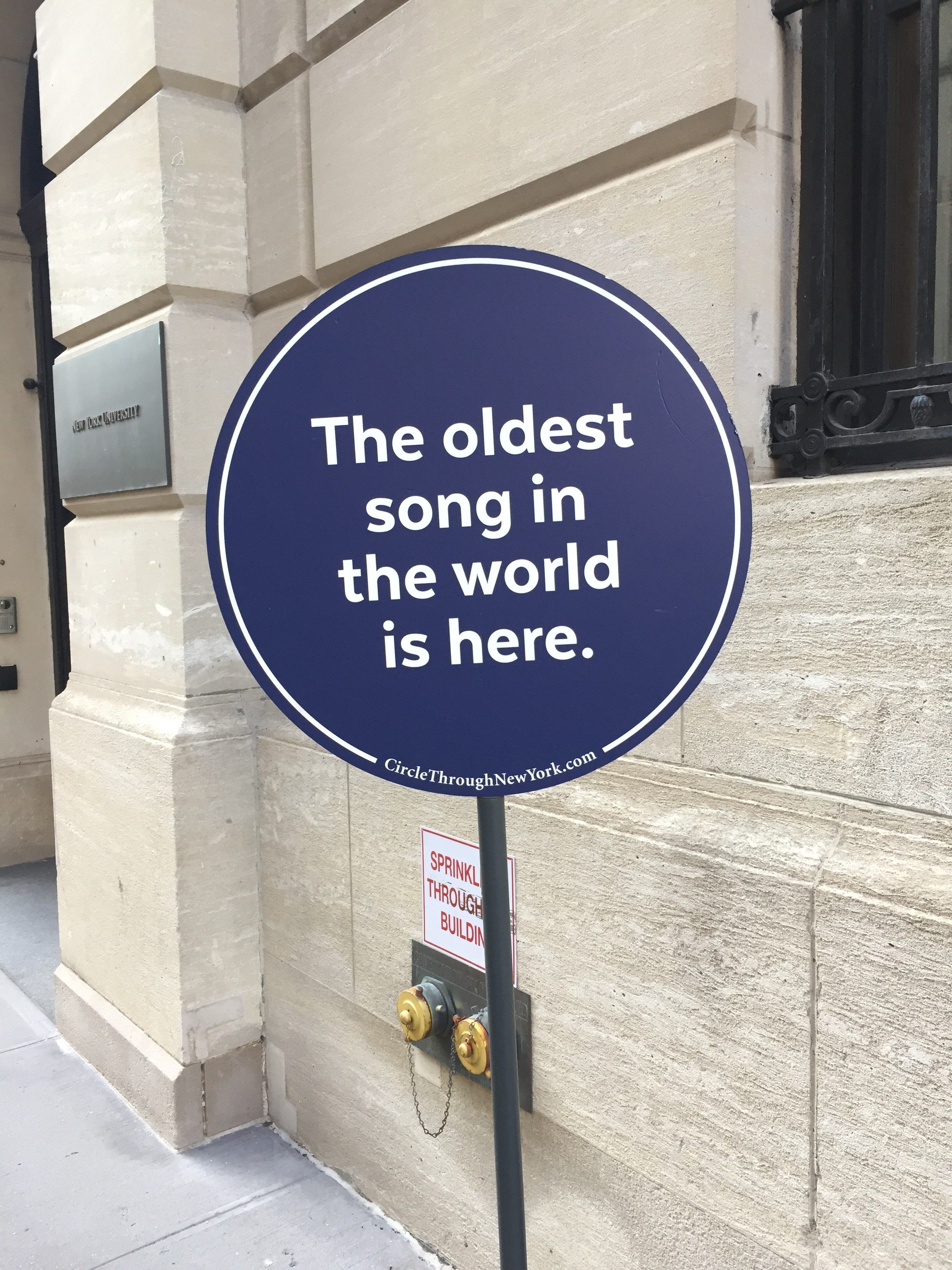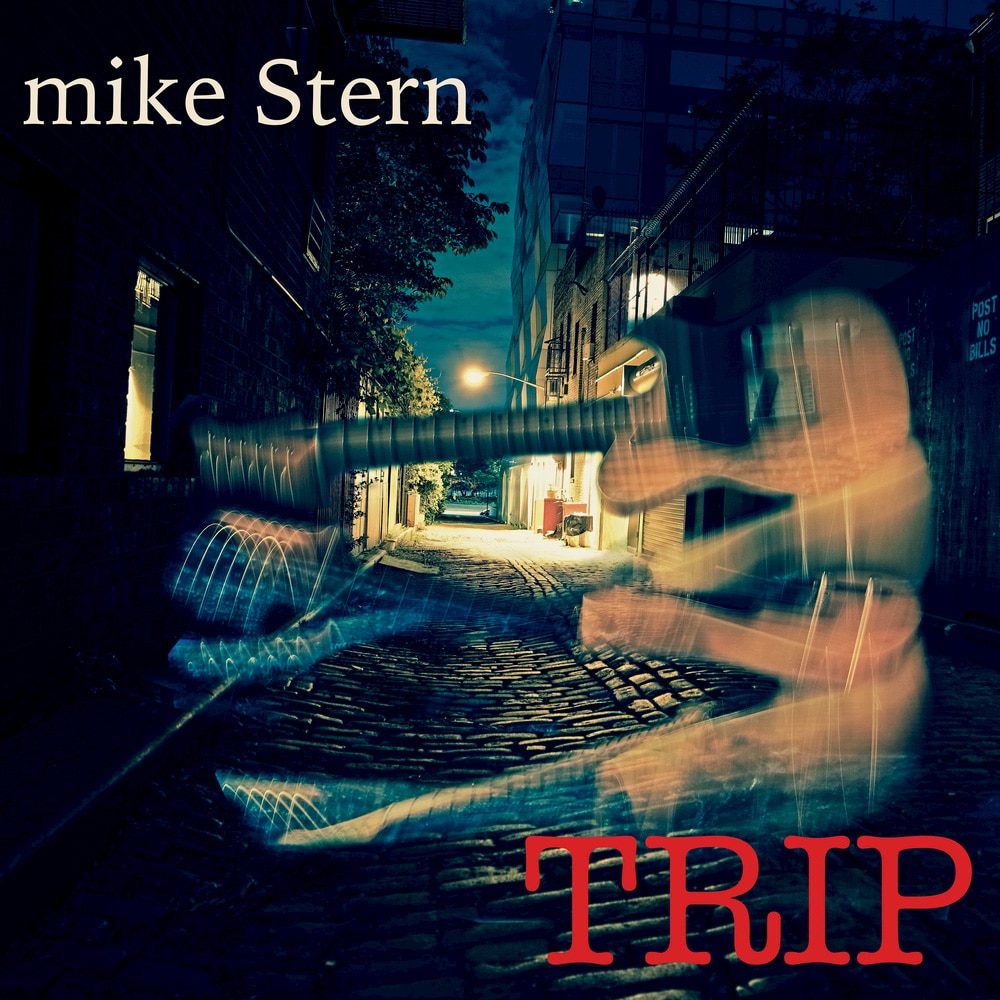
Dave Fiuczynski plays a lot of notes—in the sense that is usually meant and in another sense that is decidedly a path less traveled. For sure, his musical approach includes cleanly picked note barrages and long peaks-and-valleys jazz-fusion lines, but its most unusual salient feature is microtonality. Fiuczynski explores the notes between the notes of the twelve-tone equal tempered Western scale, drawing inspiration from a variety of both the scales of non-Western musics and the explorations of microtonal composers who fall under the broad classical umbrella.
Pretty much all guitarists are familiar with a little bit of microtonality. When you bend a note ever-so-slightly to get it to sound just like Eric Clapton, for example, that’s a tiny bit of microtonality. Often transcriptions will notate these bends of less-than-a-semitone as quarter tones, though I kind of doubt that Clapton or the blues greats who inspired him intended anything so precise. More elaborate microtonality, however, is a game changer. Fiuczynski joked from the NuBlu stage that microtonal music sounds out of tune, and that’s not an unusual first impression. Microtonal music certainly sounds different from the styles of Western music that have found their way around the globe. Like many adventurous flavors, it starts out as an acquired taste. For some, acquired tastes become flavors they can’t live without.
